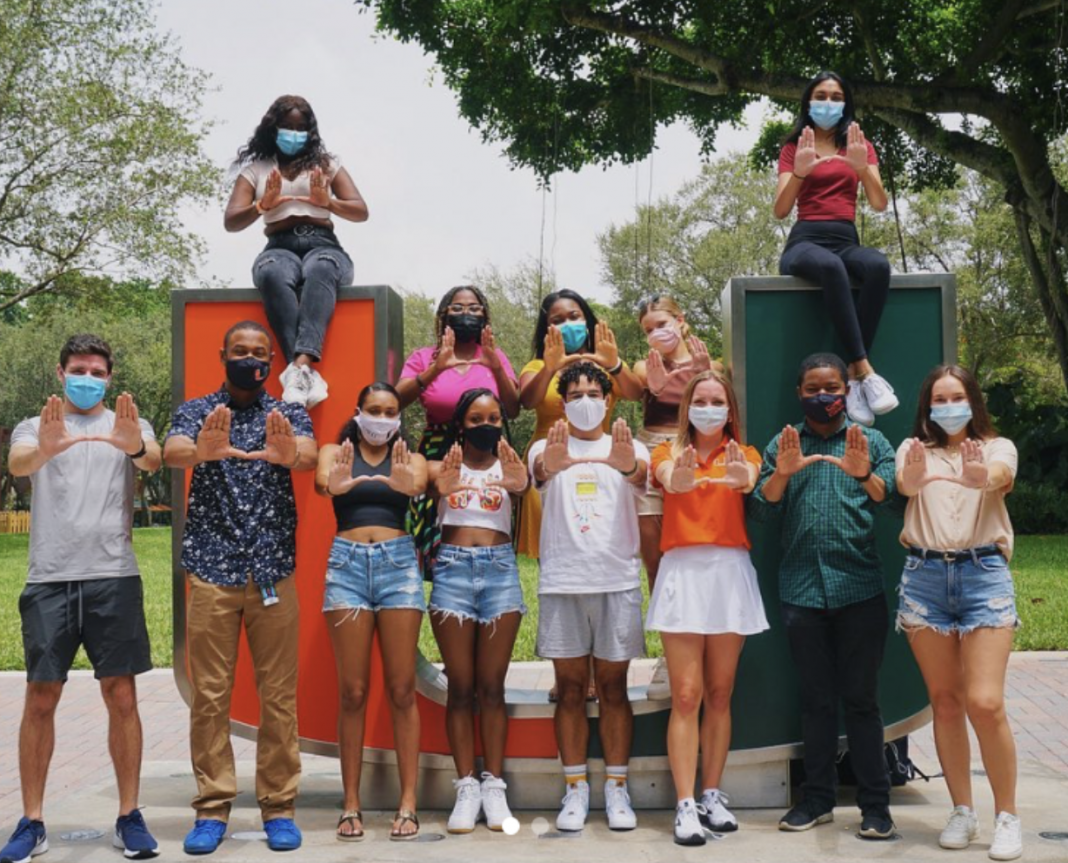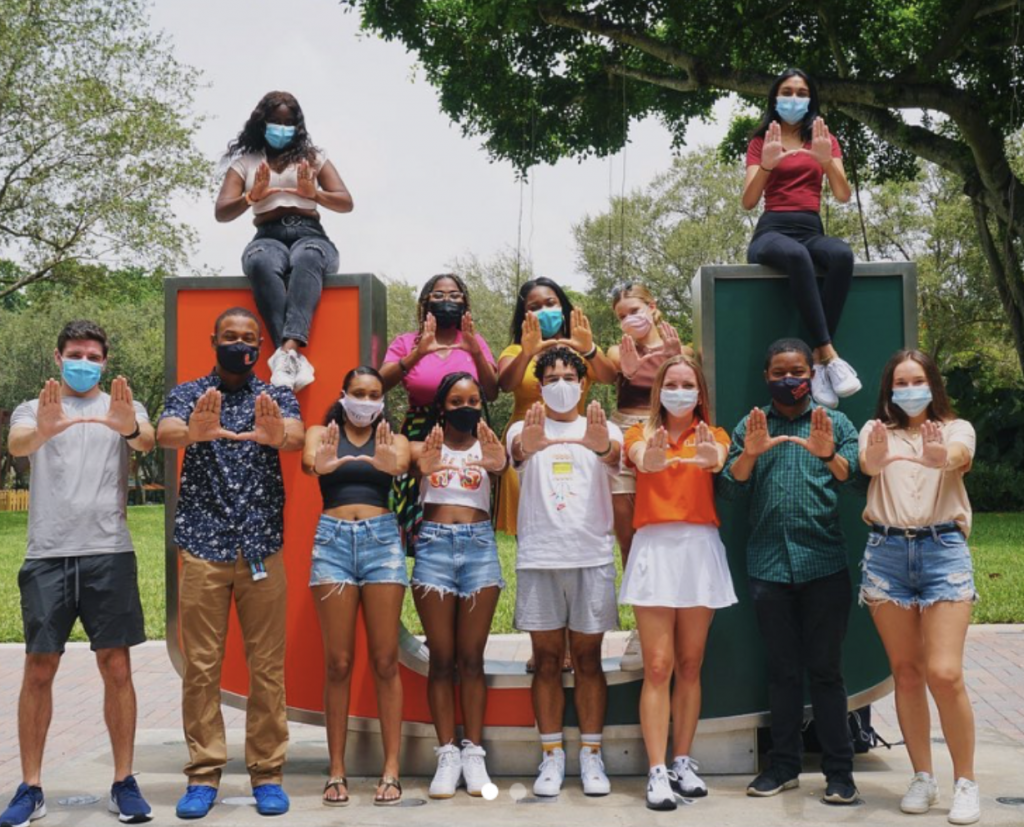

Almost four weeks into a new semester, University of Miami Student Government President Landon Coles and the 17 student government executive board members are working to adapt his initiatives for this school year. The pandemic, racial division and environmental concerns have made their job more important, and difficult, than ever.
Juneteenth
One of Coles’ initiatives with significant support thus far is requesting the university recognize Juneteenth as an official holiday. The push to add June 19, a holiday to commemorate the emancipation of Black slaves, to the academic calendar for spring and summer 2022 will involve collaboration with multicultural organizations on campus, Coles said.
Student government is requesting the university observe Juneteenth as a formal holiday and close the university for the day to permit “reflection, rest and commemoration,” said Coles, a senior majoring in political science.
“Numerous universities across the country had begun to recognize Juneteenth as a holiday. The 4th of July does commemorate independence for all people, as slavery was still an active institution at the country’s founding,” Coles said. “In the following suit of the recently declared federal declaration and universities across the country, that inspired the Juneteenth initiative to recognize and reflect on the independence of Black people within this country.”
Study Buddy Program
The university’s academic liaisons, executive officers of student government charged with enhancing education at all university colleges, hope to implement a study buddy program for national exams to better prepare students. The program will serve students studying for exams such as the LSAT and MCAT.
Campus overcrowding and COVID
While the liaisons address exam performance, the student government senate is addressing concerns of overcrowding on campus, with the 5,250 on-campus residents marking the highest total since the 1980s. The student government senate recently launched a survey about student sentiments on classroom space, congestion and safety. This survey will inform any potential future policy recommendations. Additionally, SG has advocated for additional mask-wearing signage, shuttles to alleviate congestion and an improvement in WiFi connectivity.
“The administration’s agenda reflects the times. While we did not run our campaign on addressing campus congestion or Wi-Fi issues, it is our duty to remain flexible and meet the needs of the students as they arise,” Coles said. “I have a strong sense of pride on the platform points for which we ran while maintaining respect for the simple reality that sometimes our ideas will not come to fruition as intended nor at the time we intended. As issues arise, they sometimes take precedence over our original platform points, but this is not a race – it’s a marathon. The greatest tools in my toolbox are flexibility, compassion, positivity and faith.”
Wheelchair Accessibility
Another main initiative of the Senate is to make campus infrastructure more accessible for wheelchair users.
How student government initiatives are enacted
The department the liaisons collaborate with depends on what type of initiative is proposed. Some of the initiatives are short-term goals that can be completed during the tenure of a single administration. Other initiatives, however, take years. There are now about 250 individuals working on coming up with ideas.
“In reality, we have seven to eight months to be active, so we are not able to do everything,” Coles said. “It is a marathon, not a sprint. We have to lay a solid foundation for students who come after us. We have to pass the baton to the next generation.”
Betsy Mullins, a sophomore majoring in political science and Spanish, agrees with Coles’ sentiment. Although Mullins is a sophomore, she is the freshman class senator, as elections for this academic year are not until this upcoming week.
“When we propose bills, we make sure it’s not for us right now, but that it will benefit students to come as well,” Mullins said.
A recent initiative that Mullins is proud of is the extension of hours for on-campus restaurants, the Wellness Center and libraries. When curfews were introduced on campus, those hours were significantly limited.
“Last year during COVID, we were very active in making sure we extended the hours and curfews as COVID restrictions changed,” Mullins said, “With hours being shortened, it gave students a smaller period of time to study.”
With multiple initiatives and projects from SG always in the works, much of what SG works on goes unnoticed by the student population.
“There is always work going on campus whether they see it or not. I encourage students to get involved in student government and advocate for other students on their behalf, ” Coles said. “We are here to support all undergrad students. We are an open door to everyone.”





